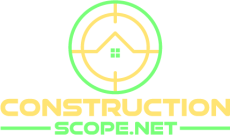Different staffing agencies make use of recruitment software that suits them best. There are many such CRM software systems available in the market. And it is worth it to take the time to understand what each has to offer and which particular one is suitable for the agency.
The value in using recruitment CRM software
Agencies who have been utilising and leveraging the power of recruitment agency software will agree that it truly helps them work more efficiently and deliver better quality results.
Efficiency in the recruiting process results in getting more done in a shorter period. Technology helps recruiters work smarter and faster. The upshot is recruiter productivity, happier candidates and companies, and more time to focus on networking and talent sourcing.
Recruitment agencies placing permanent staff use permanent recruitment software. This type of recruiting software is useful in quickly sifting through social media platforms to find suitable candidates. It also integrates seamlessly with other tools used by recruiters.
Recruiters who specialise in placing temps utilise temporary recruitment agency software that hosts features such as candidate planner availability, online booking sheets, and pay and bill functions.
Executive search is different to traditional recruiting as it focuses on the client company’s needs. Head-hunters work with top-level executives to find a candidate that best meets their client’s needs. They use executive search software to ensure that talent sourcing is better and easier.
Choosing the best recruitment agency software
When recruiters start on this journey to find the best recruitment software for agencies, there is a belief that only the ‘best’ in the market is the right choice.
However, selecting a good recruiting tool is not as straightforward as picking up the first one that appears popular with a big market presence.
The best recruitment software is one that fits an agency’s needs perfectly. There is no one best CRM software. What users do get, however, is a good software system that is suitable for a business’ needs and future goals.
To that effect, decision-makers must carefully look at several metrics when trying to decide on an appropriate recruitment database software. Here are three fundamental questions to guide recruiters on their journey to finding great recruitment agency software.
1. Should agencies get cloud-based or on-premise?
In the modern recruiting industry, many agencies are opting for cloud software, especially in light of the pandemic where working from home has become a reality for everyone. Both cloud based software and on-premise offer good advantages to customers. While cloud based recruitment software enables effortless sharing and storing of data, on-premise provides the convenience of having the data stored in location at the office.
Agencies with recruitment CRM cloud software have the flexibility of working from anywhere. They can leave the security, upgrade and maintenance of the software to the supplier. For agencies who prefer an on-premise CRM software system, they have the advantage of immediate access to all their data. They take care of their data’s security and maintenance themselves. But this kind of software is not suitable if offices have employees working remotely.
2. Is a SaaS platform the better choice?
Software as a service offers financial flexibility. This makes it a great choice for start-ups. Agencies find that it is easy to implement and their consultants can start using the software immediately.
A SaaS software is available to users on a subscription model. It is flexible – as a company’s user number grows, they can increase the number of licences according to their needs. Similarly, if the company wants to reduce the licenses, they can do it immediately. Users pay either on a monthly basis or annually.
3. Why is a demo important?
Every good software supplier is happy to provide a product demo to prospective customers. Product demos offer the perfect opportunity to see the software in action. Observing how the recruitment software works give them a better idea of how the software will fit in their daily workflow and in what ways it can improve their services.
These demos are usually conducted online and can be attended by many people. Most decision-makers ask their colleagues to sit in on the demo as it helps to have different people observe the various software features and functionalities.

